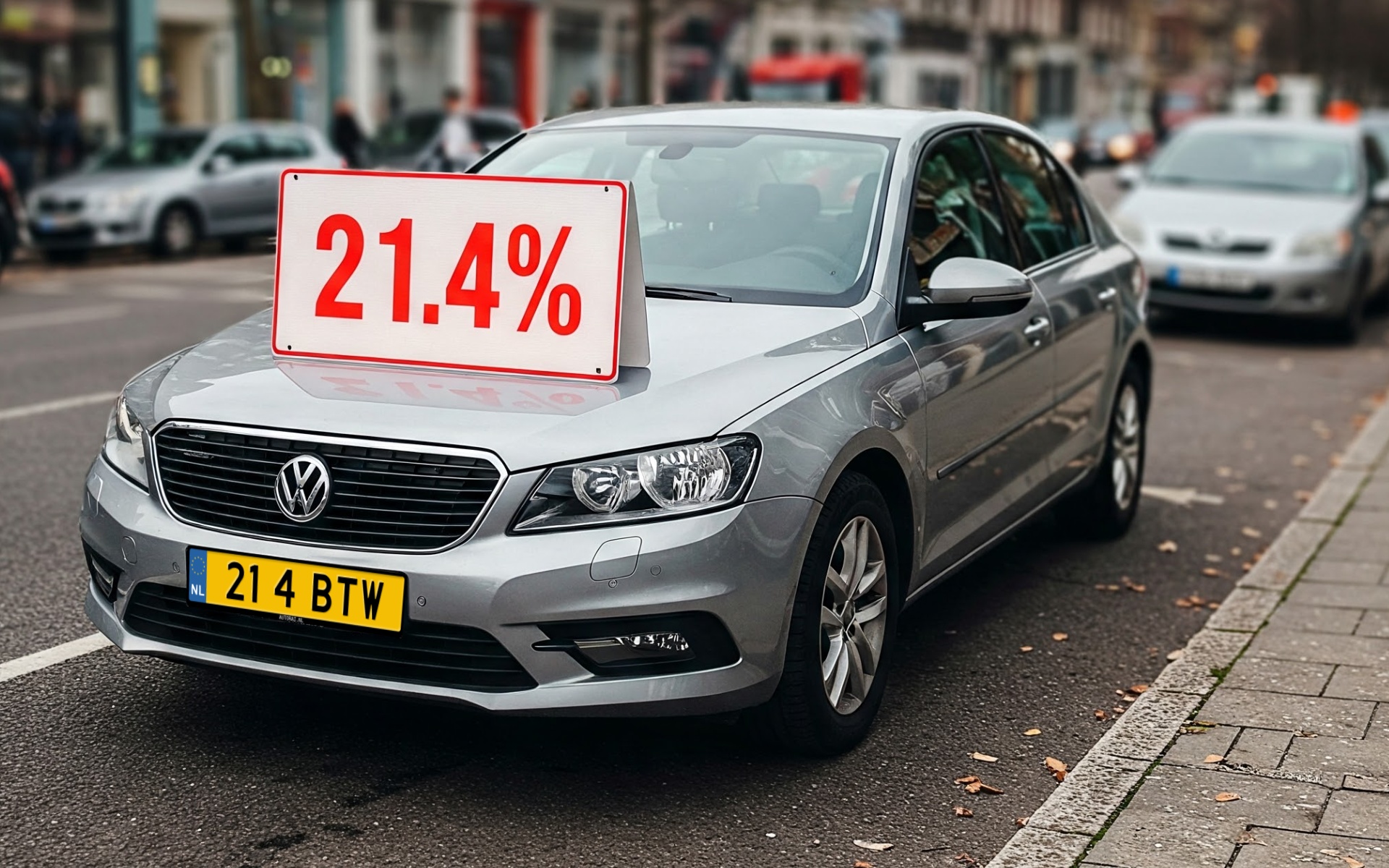21.4 percent VAT in 2026: car prices even higher
VAT rate to 21.4 percent
Why this VAT increase? Simple: there is a hole in the budget of 1.2 billion euros. And that hole must be closed. The increase in the higher VAT rate should help with that. Of course, this in turn affects purchasing power and inflation. The prices of goods will also rise, as will the prices of cars. So count – if this measure gets the green light – that car prices will continue to rise in 2026.
The impact on prices
Of course, we also like to visualize the impact such a VAT increase will have on the car price. Because in 2025, 21 percent VAT still applies. In 2026, it is likely to become 21.4 percent. We give five different calculation examples to show the impact of this VAT increase. We use five different car prices for this purpose: 25,000, 35,000, 45,000, 55,000 and 65,000 euros.
Calculation examples
| Car price (excluding VAT) | VAT 2025 (21%) | Total price 2025 | VAT 2026 (21.4%) | Total price 2026 | Difference |
| 25,000 euros | 5,250 euros | 30,250 euros | 5,350 euros | 30,350 euros | 100 euros |
| 35,000 euros | 7,350 euros | 42,350 euros | 7,490 euros | 42,490 euros | 140 euros |
| 45,000 euros | 9,450 euros | 54,450 euros | 9,630 euros | 54,630 euros | 180 euros |
| 55,000 euros | 11,550 euros | 66,550 euros | 11,770 euros | 66,770 euros | 220 euros |
| 65,000 euros | 13,650 euros | 78,650 euros | 13,910 euros | 78,910 euros | 260 euros |
On a new price of 25,000 euros, you will pay a VAT rate of 5,250 euros in 2025. In 2026, it will be 5,350 euros. A difference of 100 euros. On an amount of 65,000 euros, the difference is greater. There the VAT difference rises to 260 euros. In the table above, we have not yet included BPM.

